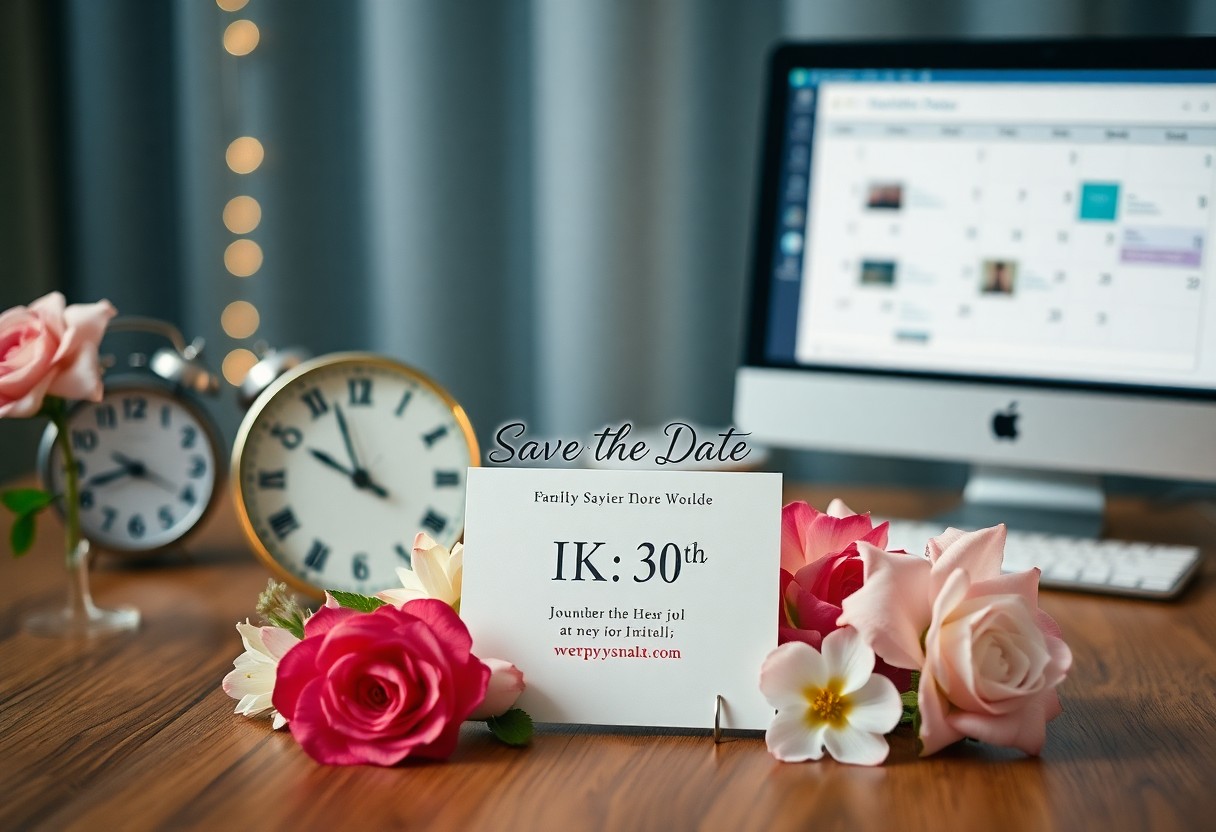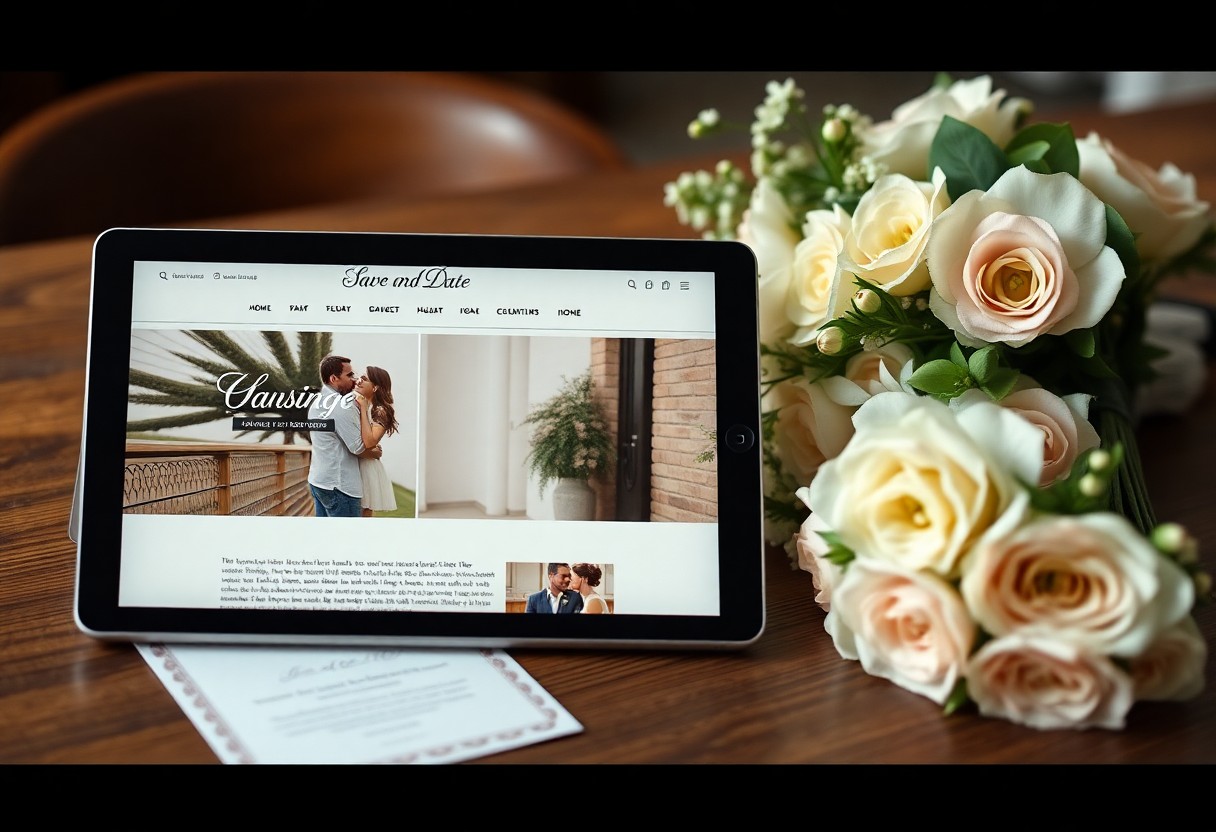There’s a unique art to corporate event planning that can elevate your business gatherings, whether they’re intimate retreats or expansive conferences. At Weddings By Wendi, we leverage our extensive expertise to ensure your corporate events reflect professionalism and attention to detail. From venue selection to managing logistics, our goal is to create memorable experiences that resonate with your team and guests. Discover how you can transform your corporate interactions into exceptional occasions that foster connection and drive success.
Key Takeaways:
- Tailored Experiences: Customize your event to reflect your brand and corporate culture, ensuring that every detail resonates with your organization’s mission.
- Scalability: Our planning services cater to events of all sizes, from intimate retreats to large-scale conferences, providing flexibility and expertise regardless of the scale.
- Seamless Execution: Rely on our professional team to manage logistics efficiently, allowing you to focus on your goals while we handle the intricate details.
Understanding Corporate Events
To effectively plan your corporate events, it’s vital to grasp their essence. Corporate events encompass a wide range of gatherings organized by businesses to foster connections, share information, and boost morale. These interactions can take various forms, adapting to the unique culture and objectives of your organization.
Types of Corporate Events
To better appreciate the landscape of corporate gatherings, consider the following types:
- Business Retreats
- Conferences
- Workshops
- Networking Events
- Team-Building Activities
This variety ensures you can select the best format to achieve your specific goals.
| Type of Event | Purpose |
|---|---|
| Business Retreats | Strategic planning and team bonding |
| Conferences | Sharing knowledge and industry trends |
| Workshops | Skill development and training |
| Networking Events | Building professional relationships |
| Team-Building Activities | Enhancing collaboration and morale |
Defining Objectives and Goals
Above all, establishing clear objectives and goals is necessary for your corporate events. Knowing what you want to achieve will guide your planning process and ensure alignment with your organization’s mission.
Events serve as vital touchpoints for your organization, creating opportunities for communication, collaboration, and growth. By defining specific objectives such as enhancing employee engagement, launching new products, or fostering relationships with clients, you set a roadmap for success. Tailoring your event to meet these goals equips you to maximize your impact and ROI, ultimately elevating your corporate events beyond mere gatherings to powerful strategic assets.
Budgeting for Corporate Events
While planning a corporate event, effective budgeting is important to ensure that your goals align with your financial capabilities. You need to identify all potential expenses and consider the overall value that different elements bring to your event. By setting clear financial boundaries, you can allocate funds strategically to create an impactful experience for your attendees, whether it’s an intimate retreat or a large-scale conference.
Cost Considerations
With various elements impacting the total cost of your event, it’s important to consider venue, catering, technology, and promotional materials, among others. Each of these components contributes to the overall experience, so evaluate them based on your event’s objectives. Explore cost-effective options to maximize your budget, while ensuring quality and professionalism.
Allocation of Resources
Allocation of resources involves determining how to distribute your budget across different aspects of the event to achieve the best results. By prioritizing your budget effectively, you can ensure that critical areas receive the funding they need for success.
For instance, if your conference relies heavily on technology for presentations and attendee engagement, you may decide to allocate a larger portion of your budget towards high-quality audio-visual equipment. Conversely, for a business retreat focused on team-building, investing in activities and personalized services might take precedence. Assess the unique needs of your event to guide your financial distribution and enhance the overall experience for your attendees.
Venue Selection
Unlike social gatherings, corporate events demand venues that reflect professionalism and accommodate varied activities, from intimate retreats to large-scale conferences. Your venue sets the tone for your event and should align with your branding while offering necessary amenities and accessibility. Measuring both atmosphere and functionality can significantly enhance the overall experience for your attendees.
Factors Influencing Venue Choice
Selection of the right venue is impacted by several factors:
- Capacity and space requirements
- Location accessibility
- Facilities and technical equipment
- Aesthetic appeal and ambiance
The selection process should involve a thorough evaluation of how these factors collectively support your event’s goals.
Tips for Choosing the Right Location
An effective way to ensure your venue aligns with your needs is by considering the following tips:
- Define your event objectives clearly
- Consult with stakeholders for input
- Visit potential venues in advance
- Evaluate the venue’s service and support team
This approach allows you to tailor your venue selection process to suit your specific corporate event requirements.
A comprehensive analysis of your venue options enhances the choice you make. For example:
- Consider utilizing online tools for virtual tours
- Factor in your budget limitations
- Assess the area’s accommodation and dining options
- Analyze feedback from previous events held at the venue
This will enable you to pinpoint the location that best fits the unique needs of your corporate event.
Planning and Coordination
All successful corporate events hinge on meticulous planning and seamless coordination. You must ensure that every detail, from venue selection to vendor management, aligns with your overarching goals and objectives. By approaching each aspect with a strategic mindset, you can elevate your events from intimate business retreats to large-scale conferences that resonate with your audience.
Developing a Timeline
To create an efficient workflow for your event, it’s necessary to develop a comprehensive timeline. Start by outlining key milestones and setting deadlines for each phase of the planning process. This will help you stay organized, anticipate potential challenges, and ensure that no detail is overlooked as you move closer to your event date.
Team Roles and Responsibilities
The effectiveness of your corporate event planning largely depends on clearly defined roles and responsibilities among your team members. Establishing specific duties for each team member ensures that everyone understands their contributions, which promotes efficient collaboration and minimizes overlap.
Roles should be tailored to leverage the strengths of your team. For instance, designate a lead coordinator to manage logistics, while others may focus on marketing, vendor relations, or on-site management. This structured approach not only streamlines the planning process but also empowers your team to take ownership of their tasks, leading to a more productive and cohesive planning experience.
Marketing and Promotion
Not all marketing strategies are created equal, especially when promoting corporate events. You’ll want to craft a tailored plan that resonates with your target audience, leveraging the right channels to convey your event’s value and uniqueness. From email campaigns to partnerships with industry influencers, a well-thought-out marketing approach can significantly boost attendance and engagement.
Creating an Event Marketing Strategy
Strategy is necessary for ensuring your corporate event captures your audience’s interest and drives attendance. Start by defining your objectives and identifying your target audience. From there, create a multi-channel marketing plan utilizing digital tools, print materials, and networking opportunities to effectively share your event’s vision and benefits.
Leveraging Social Media and Networking
About 79% of event attendees engage with the event via social media before and after it occurs. By actively promoting your corporate event on platforms like LinkedIn, Instagram, and Twitter, you can amplify your reach. Additionally, encourage attendees to share their experiences online, fostering a vibrant community and increasing interest in your event.
But leveraging social media goes beyond simple promotion; it’s about interaction and building relationships. Engage with your audience by creating event-specific hashtags or offering exclusive content tailored for your followers. Utilize networking opportunities both online and offline to connect with potential attendees and industry influencers, expanding your reach and generating buzz around your event. This strategy not only enhances visibility but also cultivates a sense of involvement and excitement within your community, driving greater participation.
Execution and Management
Many aspects of corporate event planning hinge on effective execution and management. From logistics to attendee experience, a well-organized event strengthens your brand’s reputation and fosters meaningful connections. Keeping your goals in mind while paying attention to every detail ensures that your event runs smoothly and meets your expectations. Your dedicated planning team will help you navigate the entire process, supporting you in creating an engaging atmosphere that reflects your corporate identity.
Day-of Coordination
Management on the day of your event is crucial for a seamless experience. This stage involves overseeing all scheduled activities, coordinating vendors, and addressing any issues that may arise. Your team will keep everything on track, allowing you to focus on engaging with your guests and maximizing networking opportunities.
Handling Unexpected Challenges
An effective plan accommodates unexpected challenges, allowing your event to adapt swiftly. Staying flexible can minimize disruptions, ensuring that your guests still have a positive experience, regardless of surprises that may appear.
Considering the dynamic nature of corporate events, being prepared for unexpected challenges is vital. From venue issues to last-minute changes in the agenda, having a contingency plan can turn potential setbacks into opportunities for growth. By keeping communication open with your team and monitoring the situation closely, you’ll be able to address any concerns that arise. This proactive approach not only enhances the experience for your attendees but also reinforces your commitment to excellence in corporate event planning.
Final Words
Corporate Events by Weddings By Wendi Where Business Meets Exceptional Planning
Leveraging our extensive event planning expertise, we’re expanding our services to meet your corporate needs. Our attention to detail and professional execution now extends to business events of all sizes.
Our Corporate Services
Strategic Event Planning ✧ Corporate Retreats & Team Building ✧ Business Conferences ✧ Product Launches ✧ Company Milestones ✧ Holiday Parties ✧ Executive Meetings
Venue Options
Stone House Ranch – Corporate Retreat Center ✧ Spacious indoor and outdoor meeting spaces ✧ State-of-the-art presentation facilities ✧ Team building activity areas ✧ Accommodates up to 300 attendees ✧ Private breakout session rooms ✧ Full catering capabilities
Our Corporate Planning Services Include: • Comprehensive budget management • Vendor coordination • Timeline development • Technical equipment setup • Catering management • On-site event coordination • Registration and check-in services • Corporate branding integration
Why Choose Us for Your Corporate Event? • Proven track record in large-scale event management • Detail-oriented planning approach • Professional vendor network • Flexible venue options • Customizable packages • Dedicated project manager



